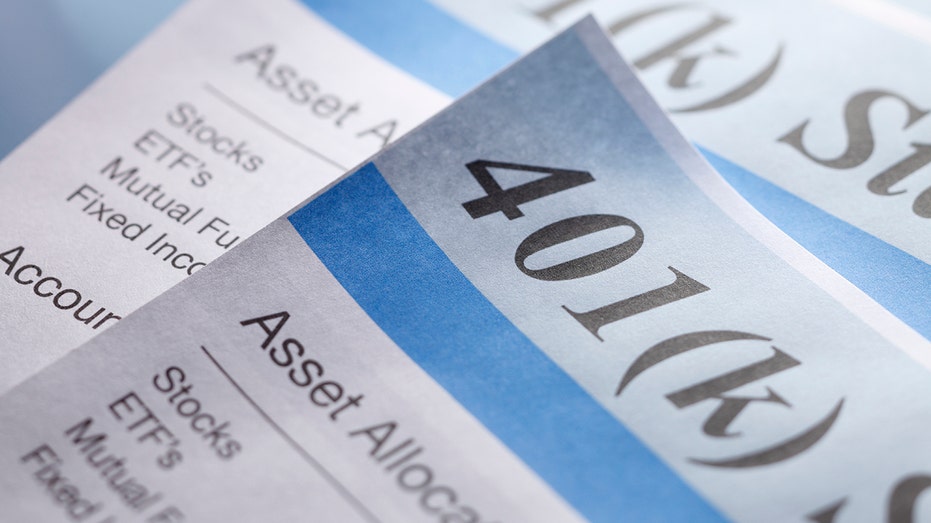Americans are yanking money out of their retirement savings to cover bills
Hardship withdrawals on the rise as more Americans tap retirement savings
Inflation is going in the right direction, former St. Louis Fed president says
Former Federal Reserve Bank of St. Louis James Bullard provides insight on the state of the economy on 'The Claman Countdown.'
A growing number of Americans are making emergency withdrawals from their 401(k) retirement plans to pay for everyday necessities amid chronically high inflation, according to new data from Fidelity.
About 2.3% of workers with employer-sponsored 401(k) plans made a "hardship" withdrawal during the three-month period from July to September 2023, according to the Fidelity report.
That marks an increase from just 1.8% workers who pulled money out of their retirement savings during the same time period last year..
CREDIT CARD DEBT RISING IN DOUBLE-EDGED SWORD FOR THE ECONOMY

About 2.3% of workers with employer-sponsored 401(k) plans made a "hardship" withdrawal during the three-month period from July to September 2023, according to the Fidelity report. ( / iStock)
Hardship withdrawals allow workers to tap their 401(k) for an "immediate and heavy financial need."
Individuals who make these types of withdrawals owe income tax on the money and could be hit with a 10% early withdrawal fee if they are under the age of 59½. However, the penalty can be waived if workers provide adequate evidence that the money is being used for a qualified hardship, such as a medical expense.
Someone who takes a hardship withdrawal also cannot pay it back to their 401(k) and cannot roll that money into another retirement savings account. Americans are pulling out on average about $5,070, which is comparable to hardship withdrawals in both the second and first quarters.
The increase in workers tapping their 401(k)s for emergency purposes comes as they confront stubbornly high inflation that has rapidly eroded their purchasing power.
A FED PAUSE LIKELY WON’T HELP STRUGGLING CONSUMERS

A sticker for credit cards is displayed on a door in New York, on Oct. 17, 2023. (Angus Mordant/Bloomberg via / Getty Images)
The top two reasons behind the uptick in Americans making hardship withdrawals were avoiding foreclosure or eviction and medical expenses.
"Account balances have decreased slightly since last quarter, while withdrawals and loans are inching up, showing the impact economic events such as inflation and market volatility can have on Americans‘ wallets – and ultimately their retirement savings," the report said.
The government reported last month that the consumer price index, a broad measure of the price of goods, including gasoline, groceries and rents, rose 3.2% in October compared with the previous year. Although the gauge is down from a peak of 9.1%, it remains above the pre-pandemic average.
GET FOX BUSINESS ON THE GO BY CLICKING HERE
Americans are increasingly relying on their savings and racking up credit card debt to pay for necessities.
The Federal Reserve is expected to report on Tuesday that total credit card debt hit a fresh record at the end of September in data dating to 2003. The rise in credit card usage and debt is particularly concerning because interest rates are astronomically high right now.





















